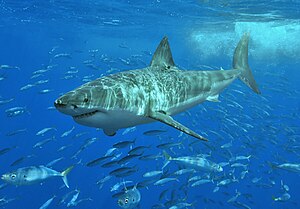Lately I have been noticing something about a lot of novels (and other books, too) that I find irritating. It seems that authors feel compelled to sprinkle their writing with similes. While we all know from high school English how much this can enrich writing, perhaps this practice is being taken too far.
Let’s face it, some authors seem to feel compelled to put in a comparison to something in nearly every sentence, as if we, the reader, can’t possibly understand what it would be like to be present or have a particular experience without this comparison. When they’re doing this, they quickly run out of juice, and the similes become ridiculous.

I never used to notice this overuse. I don’t know if this was because I read everything so fast, so I just mentally skipped the bad analogies, or if writing styles have changed in the past ten or fifteen years. But, lately, I have been listening to books as I drive around, and the similes jump out at me. I cannot escape them. Sometimes, they are like gunfire, shooting me in the head (terrible simile intended). I’ve started to hate them. I wish authors would just describe the color of the sea, the height of the waves, and the actual expression on a person’s face, instead of always saying things like: “the sea was the color of an empty Heineken bottle,” (I made that one up, but you get the idea. What’s wrong with “the sea turned an oily green just before the storm started?”)
I first noticed this proliferation when I listened to a book about great white sharks off the coast of California: The Devil’s Teeth: A True Story of Obsession and Survival Among America’s Great White Sharks, by Susan Casey. Ms. Casey used some truly awful similes and dropped them into her prose (okay, I am tempted to say her like a parent dropping Halloween candy into trick-or-treater’s bags, or Assad’s loyal forces spraying bullets, but I won’t) nearly every sentence until I felt so badgered by them that I turned my player off.

However, she isn’t the only one, by any means. I’ve started looking for the worst ones. The winner so far is in Jody Picoult’s Vanishing Acts: “His heart felt as thick as a sponge.” Huh? What on earth does that mean? I don’t think of sponges as being particularly thick, or perhaps she meant dense, but they aren’t really very dense, either. Were we meant to think that his heart felt full of holes? Thin and light like a dried out sponge? It’ll be difficult to beat this particular example for pure confusion.
Original similes can enrich language and deepen the meaning. However, how many novel comparisons can a writer really hope to originate in a single work, let alone on a single page, without falling into triviality? And reusing other’s concepts risks dropping into cliché or plagiarism. So I think they should be used carefully. They should fit the thing you’re trying to describe, add something to the reader’s experience, and appear sparingly, not just because you’re supposed to use them to be a good writer or because you’re too lazy to come up with a clear description.
While I was thinking about this topic, and had already written the first draft of this post, I read a post by Sara Steeves which suggests replacing similes with metaphors. I read it and felt relief. Here it is at metaphor magic. Magic indeed! Similes have their place, for sure. Metaphors are more alive and less jarring to the reader, than similes. She suggests a writing exercise, where you replace all similes with metaphors. Might be worth a try.
What do you think? Am I all wet on this one? Do you love all similes? Do you have an awful one to add to the collection?